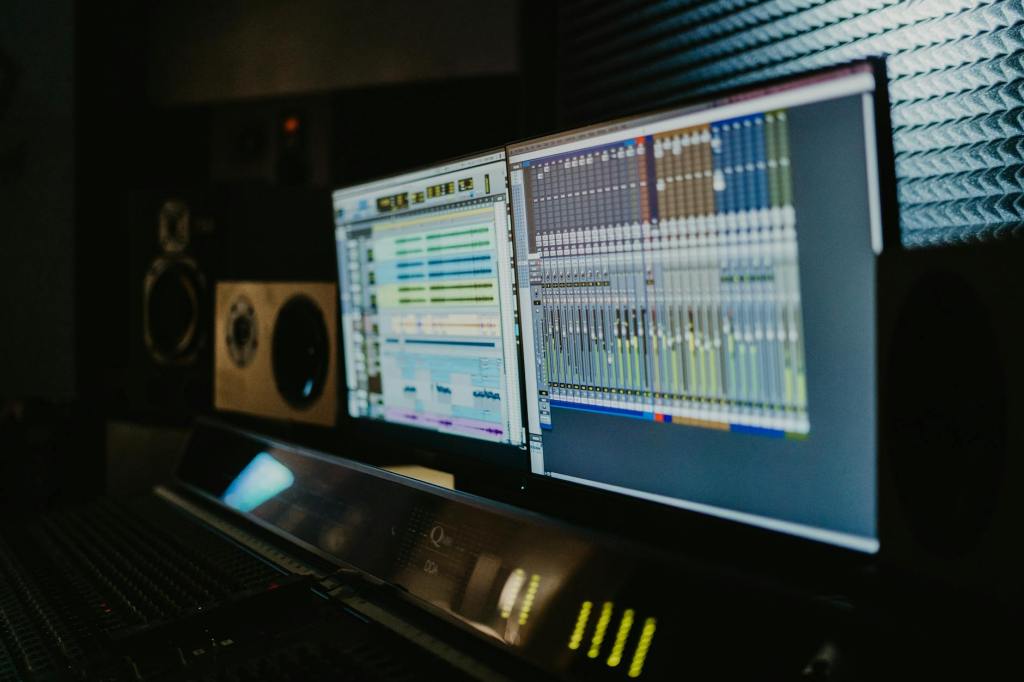
By: Mackenzie Kinsella
AI-generated music has been a point of contention in copyright law since the song, “Heart on My Sleeve,” performed by an AI-generation of Drake and The Weeknd’s voices. The song acquired millions of listens on TikTok, Spotify, Apple Music and other streaming platforms before it was taken down due to the requests from Universal, Drake and The Weeknd’s label. “Heart on My Sleeve” became an alarming indication of potential copyright and right of publicity issues in music surrounding the use of AI. After the release and the pressure to take down this song, Universal urged different platforms to stop AI companies from using these AI generated tracks, and even have gone so far as to figure out different legal avenues to prevent the use of AI generated music. Publishers and streaming platforms could argue that AI companies have infringed on their copyrights, however, a fair use defense is anticipated to be used by AI companies and users.
Now, AI is problematically being used to create lyrics to iconic songs like Katy Perry’s “Roar,” Gloria Gaynor’s “I Will Survive,” and the Rolling Stones’ “You Can’t Always Get What You Want.” In response, Universal and other music publishers have filed a lawsuit accusing AI-company, Anthropic PBC, of “training” its AI models to mimic copyrighted music.
Universal Music Group (UMG) v. Anthropic
Universal Music Publishing, Concord and ABKCO have sued Anthropic in a Tennessee federal court for exploiting lyrics that each music publisher controls in the training of Anthropic’s AI chatbot, Claude 2. UMG alleges that because Claude 2 generates identical or nearly identical copies of copyrighted lyrics, Anthropic violated their publishers’ right by using lyrics from at least 500 songs without any licenses. UMG v. Anthropic and other similar cases signal a point of contention over the copyright obligations of AI companies. Music publishers, like other copyright owners, argue that tech companies have to gain permission to use copyright protected works for training AI models. Anthropic is accused by publishers of profiting from infringement and removing copyright management information from Claude 2’s output. Furthermore, UMG claims that there is already an existing market for licensing copyrighted works, currently being exploited by music streaming platforms, like Spotify, that operate licensing artists’ work.
UMG has asked the court to issue a preliminary injunction for Anthropic’s current AI model to prevent it from generating outputs that disseminate UMG’s lyrics and for the mentioned lyrics to not be used in training any of Anthropic’s future models. Without a preliminary injunction, Anthropic’s alleged copying and continued use of Claude could cause irreparable harm in regard to the licensing market for lyrics, and could erode the relationships between publishers, licensees, and the songwriters these music publishers represent.
What This Case Means for AI and Copyright Law Today?
The decision in UMG v. Anthropic could change the entire landscape of music copyright law because it is one of the first cases that addresses the use of song lyrics in AI models. Whatever the outcome, the case could set a precedent for other AI cases. A win for Anthropic could be a substantial win for AI as a whole industry and would establish a precedent against this type of AI copyright regulation within the music industry. Furthermore, a court finding in favor of Anthropic could have the potential to establish that “fair learning,” the fair use of copyrightable materials for sake of training AI models to allow for the betterment of AI development, is appropriate. However, if the court finds in favor of UMG, the ruling could act as a signal for AI developers to become more cautious in their treatment of copyrighted material without licensing. Anthropic, who has financial partnerships with Google and Amazon, could be used as an example for consequences of AI development. Google and Amazon have invested $300 million and $4 billion, respectively. Thus, the outcome of this case may affect how major tech companies evaluate their investments in AI startups.